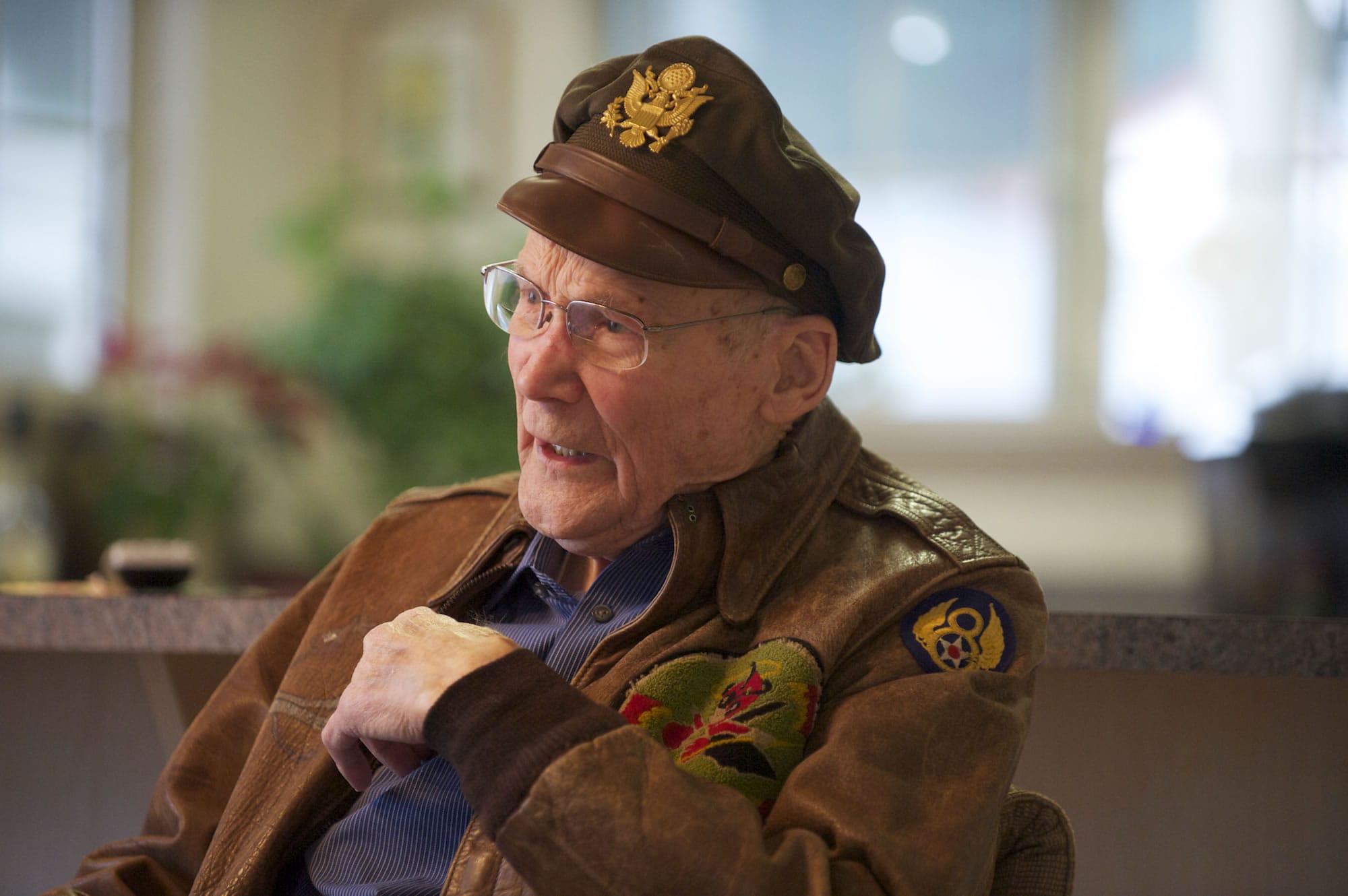Harry Generaux says his stint as a bomber pilot over Europe was no different than what other American pilots did during World War II.
As Generaux sees it, he was just lucky enough to get back alive.
On his 19th mission, luck came in the form of a couple of providential flashing lights, but Generaux did his part with some seat-of-the-pants flying in a damaged B-17.
Almost 70 years later, that account became a Christmas present for Generaux’s family.
The four-page publication looks at one of the 35 bombing missions the Vancouver resident flew with the 8th Air Force between September 1944 and January 1945.
It tells how Generaux overcame a series of challenges that put the crew on the missing-in-action list for almost three weeks. But the mission also featured an agonizing home-front challenge for two Clark County families.




